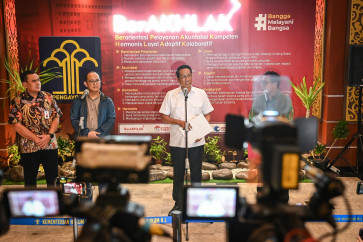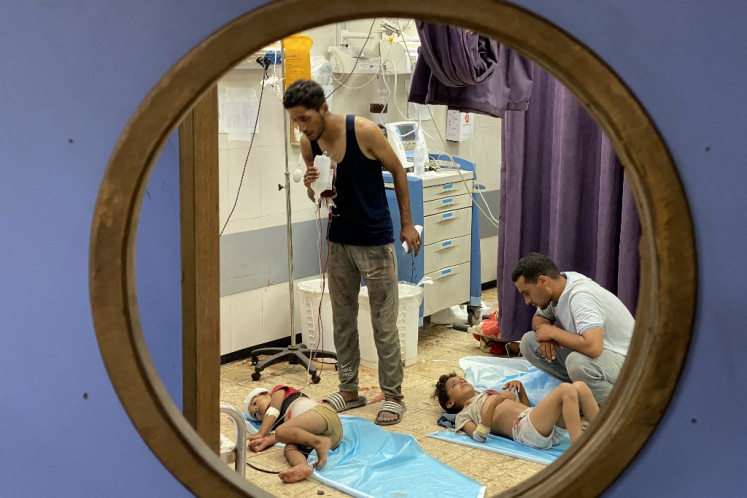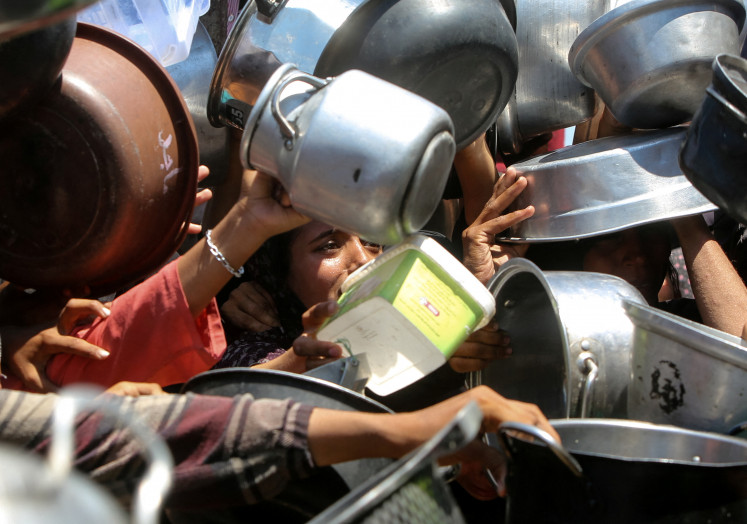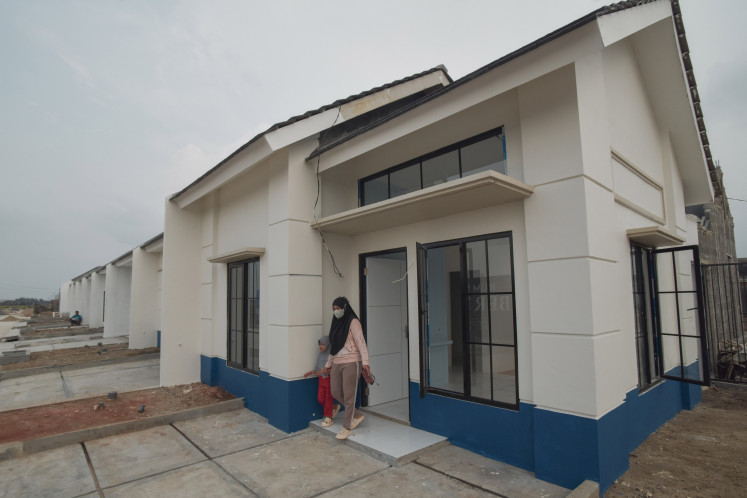Popular Reads
Top Results
Can't find what you're looking for?
View all search resultsPopular Reads
Top Results
Can't find what you're looking for?
View all search results‘Diplomacy, blood money’ secure release of RI workers
Foreign Minister Marty Natalegawa says that the exoneration of 22 Indonesian migrant workers facing execution was the result of diplomatic efforts and the payment of blood money to the families of the workers’ alleged victims
Change text size
Gift Premium Articles
to Anyone
F
oreign Minister Marty Natalegawa says that the exoneration of 22 Indonesian migrant workers facing execution was the result of diplomatic efforts and the payment of blood money to the families of the workers’ alleged victims.
The migrant workers were convicted of crimes that carried a maximum penalty of death. They avoided execution after being pardoned or having their sentences commuted.
According to local custom in Saudi Arabia, those on death row can be freed on the condition that the victim’s family forgives them and the convicts agree to pay compensation, known as blood money.
“The success is the combination of both [diplomacy and blood money],” Marty told reporters on Monday.
Marty provided no details as to how much the government paid the blood money.
He said that when handling such cases, the Indonesian government resorted to diplomatic measures in the first instance.
“The President himself repeatedly sent letters to the Saudi government. So did we at the Foreign Ministry,” he said.
An Indonesian Embassy spokesman in Riyadh earlier said Jakarta had sent a 14-member presidential task force to Saudi Arabia on Saturday to talk to officials and to intensify efforts to rescue the housemaids.
NGO Migrant Care said it doubted the government’s claims.
Migrant Care executive director Anis Hidayah said that the workers’ release was not the result of diplomatic efforts.
“It’s the result of very long legal battles. They have been imprisoned for years,” she told The Jakarta Post.
Anis also criticized the payment of blood money as a way of solving the legal problems, saying that only a handful of workers had been released through such payments.
“The government should not have done it if they helped the workers from the beginning. But they only found out about the cases later, after the workers had been sentenced to death. Blood money payments should only be a last resort,” she said.
Marty said that the Indonesian government has always respected the legal process of Saudi Arabia and only after all legal means had been exhausted had the Indonesian mission proceeded with diplomatic measures to save the workers.
Anis called on the government to step up efforts to save five more workers on death row in Saudi Arabia who were in “critical condition”.
“The President must meet with the Saudi king in person. We don’t want to have another Ruyati,” she said, in reference to the Indonesian maid who was beheaded last June after killing her boss’ wife.
Meanwhile, the Associated Press reported that 70 Indonesian Christians were facing deportation from the United States for violating entry permits. The Indonesians claimed to have fled to the US 14 years ago to avoid religious persecution following the 1998 riots.
Marty said the government would not interfere with the case.
“Everyone has the right to decide where they want to live. All I can say is that Indonesia now is very different from Indonesia in 1998 and I believe the US government knows what’s really happening in Indonesia,” he said. (tas)










